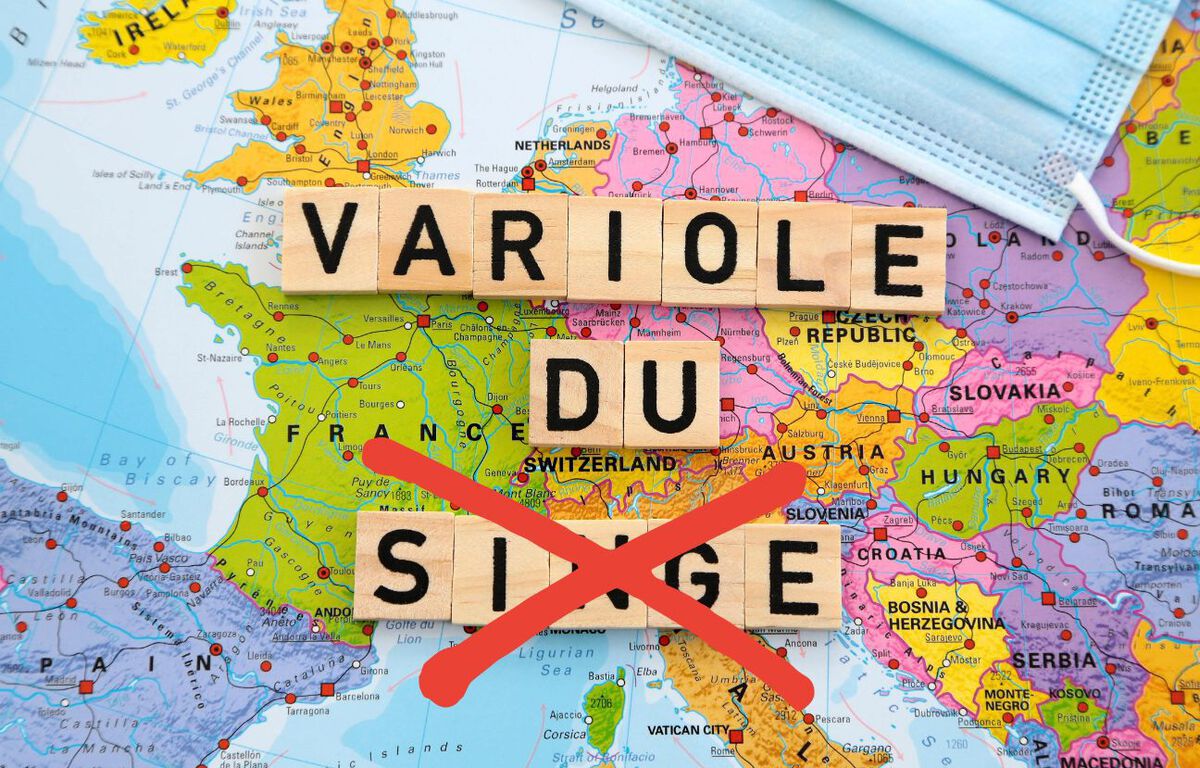Don’t say monkeypox anymore, say… Well, for the moment, we don’t know. But a brainstorm is underway at the WHO to “change the name of this virus”, its director general Tedros Adhanom Ghebreyesus having promised “announcements as soon as possible”. Beyond the single virus, it would also and above all be a question of modifying the name of its different strains, as well as that of the disease itself. Why such a change, when monkeypox has been spotted in more than 40 countries?
This consideration concerns above all the strains of the virus. They are indeed named after regions or countries in Africa: we speak of the strain of West Africa and that of the Congo Basin, the second being much more deadly than its cousin. However, 84% of new cases were detected this year in Europe and 12% on the American continent. Changing the name would therefore make it possible to reflect the current reality of the disease, while around thirty scientists, many from Africa, asked in early June “for a nomenclature that is neither discriminatory nor stigmatizing”.
“Not really a disease linked to monkeys”
The name “monkey pox” itself is misleading. The current outbreak is due to a strain that is easily transmitted from one human being to another, while the African cases came mainly from contamination by an animal. Above all, even originally, “it’s not really a disease linked to monkeys”, notes virologist Oyewale Tomori. This name is the legacy of the conditions in which the disease was discovered in the 1950s: Danish researchers had discovered it in monkeys in their laboratory. But, in real life, it is usually caught from rodents.
Alongside this misleading side, there are, again, concerns about the stigmatizing nature of such a name. “Monkeys are generally associated with countries in the South, especially Africa,” researcher Moses John Bockarie recalls on The Conversation. These concerns are part of a broader context where Africa has frequently been targeted as the source of diseases that have spread around the world. “We especially saw this with AIDS in the 1980s, Ebola during the 2013 epidemic, then with Covid and the supposed” South African variants “”, remarks epidemiologist Oliver Restif to AFP.
As such, the image is also important. Oliver Restif regrets that the media have often chosen unfortunate illustrations for their articles on monkeypox. These are often “old photographs of African patients”, while current cases “are much less serious”, he notes.
Source: 20minutes
I have worked as a journalist for over 10 years and have written for various news outlets. I currently work as an author at 24 News Recorder, mostly covering entertainment news. I have a keen interest in the industry and enjoy writing about the latest news and gossip. I am also a member of the National Association of Journalists.




:quality(75)/cloudfront-us-east-1.images.arcpublishing.com/elcomercio/7CQB22YK5NHTPCCGZCZELGGBFY.jpg)


